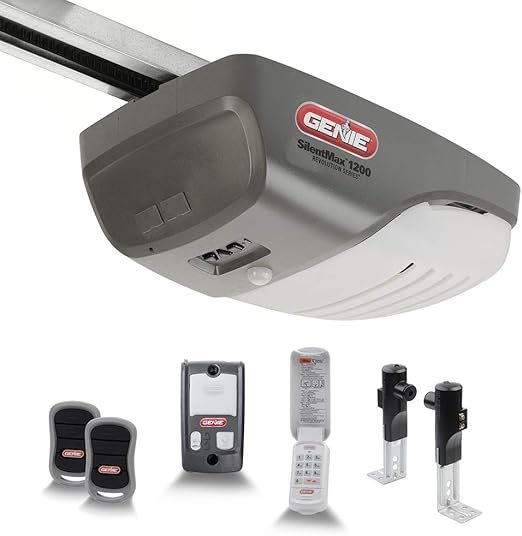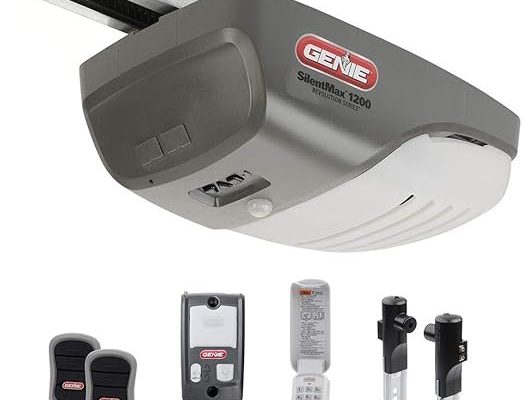
Whether you have a Chamberlain, LiftMaster, or another brand, the motor works hard behind the scenes. Different voltage levels will affect everything from how fast your door opens to how long it lasts. Let’s dive into the world of garage door openers, exploring how 140V DC compares to other standard voltages.
Understanding Motor Voltage in Garage Door Openers
Garage door openers typically come with various motor voltages, which can range anywhere from 120V up to 240V for AC motors, while many modern models use DC voltages like 12V, 24V, and the discussed 140V. You might wonder how these numbers actually affect your door’s performance. Well, a motor’s voltage can influence its durability, the speed at which it operates, and even how quietly it runs.
AC motors (like 120V and 240V) are widely used due to their robustness and raw power. They provide strong lifting force and perform well under heavy loading conditions. However, they can be loud and may have a shorter lifespan if frequently used. On the other hand, DC motors are known for their smooth operation and energy efficiency. They are quieter and often come with features like soft-start and soft-stop, enhancing the longevity of both the motor and the door mechanism.
So, what’s the deal with 140V DC? It falls into a unique category of DC motors that leverage a higher voltage to balance smooth operation with impressive power. This makes them excellent for heavier garage doors or for homes that need more consistent performance.
Comparing 140V DC to Other Common Motor Voltages
When comparing 140V DC to other motor voltages commonly used in garage door openers, such as 120V AC and 24V DC, a significant difference shows up in power delivery and efficiency.
- 120V AC: This motor is perfect for residential use, delivering strong torque.
- 24V DC: This smaller voltage is ideal for lighter doors and is often favored in home automation systems.
- 140V DC: This voltage level offers a sweet spot of power without the bulkiness of AC motors while maintaining operational smoothness.
The main takeaway is that 140V DC presents an appealing option. It provides a good balance of performance and energy efficiency, making it a great choice for mid to heavy-weight doors. It can effectively handle daily cycles while delivering minimal noise.
Why Voltage Matters: Performance Factors
You may think, “What’s the big deal? It’s just voltage!” Here’s the thing: motor voltage is directly correlated to performance factors like opening speed, lifting capacity, and overall reliability.
1. Speed: Higher voltage often translates into quicker response times. For instance, you might find that a 140V DC opener can lift a heavy garage door in seconds, while a lower voltage might require more time.
2. Lifting Capacity: If you own a heavier garage door, you’d want a motor that can easily manage that weight. The power derived from a 140V DC motor generally allows it to lift more substantial doors without strain.
3. Reliability: Motors that operate at lower voltages may not handle repeated strain as effectively as those in the mid-range, leading to failures or inefficiencies over time.
If you’re seeking a solution for a frequently used garage door, investing in a 140V DC opener might save you future headaches.
Soft Start and Soft Stop Features
Another exciting feature of many 140V DC garage door openers is the inclusion of a soft start and soft stop mechanism. Imagine your garage door gliding smoothly open and closed rather than jerking everything around. It creates a gentle experience for both the door and the entire mechanism, reducing wear and tear.
These features can significantly contribute to the longevity of your opener. A motor that ramps up power gradually will not only minimize strain on the machinery but also lead to quieter operation. For anyone who appreciates a peaceful home environment, that’s a pretty big deal.
Installation Considerations for Different Voltages
Installing a garage door opener isn’t just about buying the right model—it’s also about understanding the corresponding setup needs. If you choose a 140V DC model, there are a few things to consider.
1. Wiring Compatibility: Unlike a typical AC motor, which might be compatible with standard home electrical systems, a 140V DC system might require specific wiring and components. Check with a professional for compatibility.
2. Power Supply: Ensure your garage has access to the required voltage. You may need to replace or upgrade your existing power supply to accommodate a new opener.
3. Circuit Breaker: Installing a motor with higher voltage levels may necessitate a more robust circuit breaker. Not all homes are prepped for a 140V load, so consulting an electrician can save you future hassle.
Taking these steps may seem like a ripple in the water, but they can make a significant difference in achieving a seamless installation.
Common Troubleshooting Tips
If you’ve decided on a 140V DC garage door opener, congratulations! Yet, like any system, it might encounter issues. Being familiar with common troubleshooting tips can help you get back on track quickly.
– Door Doesn’t Respond: First, check the remote battery. Sometimes, it’s the simplest fix!
– Remote Sync Issues: Ensure the remote is properly paired with the opener. Most manufacturers provide clear instructions on how to reset this.
– Unusual Noise: If you hear grinding or odd sounds, inspect the opener and ensure everything is properly lubricated. It might also indicate a misalignment that requires adjustment.
Don’t let minor hiccups deter you. Many times, these issues can be easily resolved with a bit of patience and understanding.
Choosing the Right Garage Door Opener for Your Needs
Now that you’ve got the lowdown on the various motor voltages, how do you decide which one’s right for you? Start by considering the weight of your door. If it’s a heavy door, a 140V DC motor is likely a suitable choice.
You should also reflect on how often you use the door. If you find yourself opening and closing it multiple times daily, a stronger motor will serve you better in the long run. Energy efficiency is another thing to ponder—higher voltage motors often use less electricity, which can be a persuasive factor in your selection.
Ultimately, evaluate your *lifestyle needs* and *budget* before making a final choice.
Selecting a garage door opener with the appropriate motor voltage can make a world of difference in functionality and convenience. 140V DC motors offer an incredible balance between power and energy efficiency, providing smooth sailing for your garage door. Consider the overall weight of your door, your frequency of usage, and installation requirements when making your selection.
With the right knowledge and choices, you can ensure that your garage door opener serves both you and your home effectively for years to come. Your garage deserves an opener that’s reliable and efficient, and now, with a better understanding of the different motor voltages, you’re well-equipped to make an informed decision.
